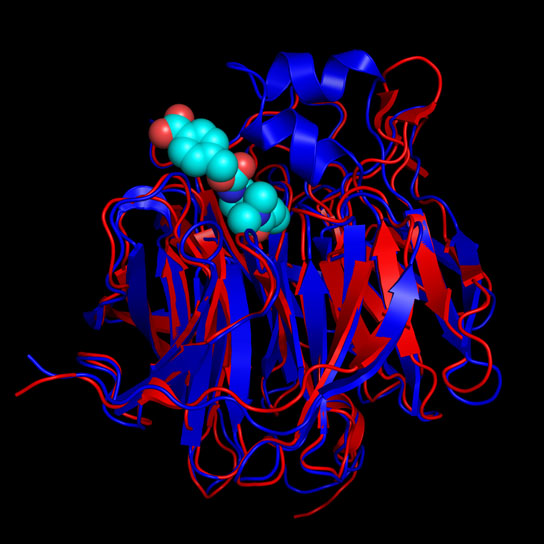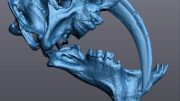
DARPA-funded Foldit is an online game with 240,000 players, allowing both experts and non-experts to collaborate in solving protein folding puzzles.
The online community of Foldit has helped produce solutions that have evaded scientists for years. Initially funded by DARPA, this community consists of roughly 240,000 players comprised of exerts and non-experts collaborating and trying to solve protein folding puzzles. Foldit has provided researchers with the structure of a retroviral protease that causes AIDS in rhesus monkeys and protein inhibitors that block H1N1 and recently, Foldit players were able to remodel the structure of a catalyst enzyme for Diels-Alder reactions.
Proteins are essential in almost all biological processes. The three-dimensional shape of the protein, which is essential to its function, is determined by protein folding. Foldit, which was initially funded by DARPA, is a game with an online community of 240,000 players that allows non-experts and experts alike to collaborate and solve protein folding puzzles. Solutions to these puzzles are sent to biochemistry researchers to analyze for advances in protein design prediction.
Recent advances from Foldit include identifying the structure of a retroviral protease that causes AIDS in rhesus monkeys and protein inhibitors that block H1N1, a virus responsible for the 1918 pandemic and the 2009 flu pandemic. Through Foldit, the crowd has produced solutions that have evaded scientists for years.
DARPA’s investment in Foldit continues to lead to advances as demonstrated by the latest paper published in Nature. The paper describes how players were able to functionally remodel the structure of a catalyst enzyme for Diels-Alder reactions, an important reaction in organic synthesis. The remodeling of the enzyme structure increases catalytic properties by 18 times, demonstrating that Foldit can be used not only for protein design, but also for protein function prediction, a more complex challenge that cannot be solved by automation.
“Modeling an enzyme with significantly enhanced catalytic properties could lead to advances in organic synthesis,” explained Jay Schnitzer, director, Defense Sciences Office. “If enzymes used in pharmaceutical production can be remodeled with enhanced catalytic properties, production times should be shortened. For the DoD, this means getting medicines to the warfighter faster and at lower cost.”
“One of the benefits to opening the aperture for non-expert participation is that they don’t come into a situation with preconceived notions of what has to happen or how, so they have an ability to see beyond the problem and identify potential new solutions from a different perspective,” said DARPA Deputy Director Kaigham Gabriel.









Be the first to comment on "Foldit Players Remodel Catalyst Enzyme for Diels-Alder Reactions"